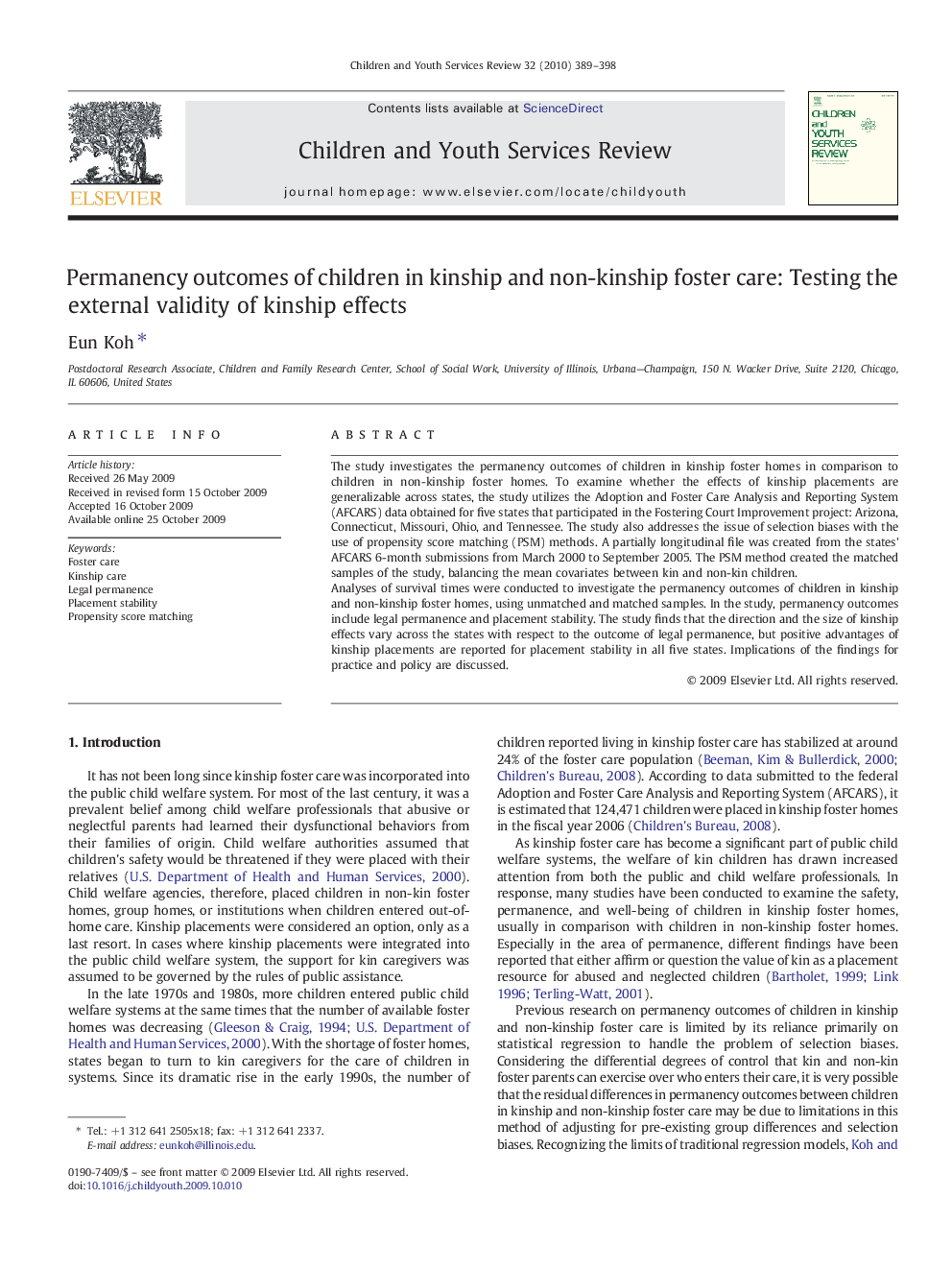| Article ID | Journal | Published Year | Pages | File Type |
|---|---|---|---|---|
| 347534 | Children and Youth Services Review | 2010 | 10 Pages |
The study investigates the permanency outcomes of children in kinship foster homes in comparison to children in non-kinship foster homes. To examine whether the effects of kinship placements are generalizable across states, the study utilizes the Adoption and Foster Care Analysis and Reporting System (AFCARS) data obtained for five states that participated in the Fostering Court Improvement project: Arizona, Connecticut, Missouri, Ohio, and Tennessee. The study also addresses the issue of selection biases with the use of propensity score matching (PSM) methods. A partially longitudinal file was created from the states' AFCARS 6-month submissions from March 2000 to September 2005. The PSM method created the matched samples of the study, balancing the mean covariates between kin and non-kin children.Analyses of survival times were conducted to investigate the permanency outcomes of children in kinship and non-kinship foster homes, using unmatched and matched samples. In the study, permanency outcomes include legal permanence and placement stability. The study finds that the direction and the size of kinship effects vary across the states with respect to the outcome of legal permanence, but positive advantages of kinship placements are reported for placement stability in all five states. Implications of the findings for practice and policy are discussed.
